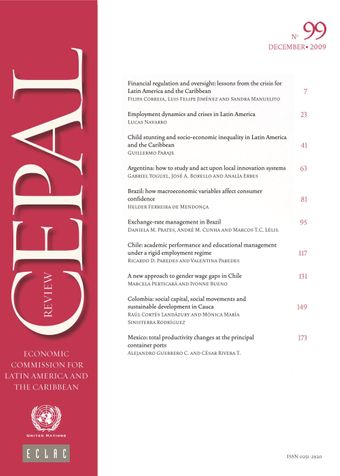-
Brazil: How macroeconomic variables affect consumer confidence
- Source: CEPAL Review, Volume 2009, Issue 99, Dec 2009, p. 81 - 94
- Spanish
-
- 29 Dec 2009
Abstract
Identifying which macroeconomic variables underlie consumer confidence is an essential step towards implementing sound economic policies. This article contributes to the subject by way of an empirical analysis based on ordinary least squares (ols), generalized method of moments (gmm) and vector autoregression (var) techniques for the case of Brazil. The findings indicate that following a loose fiscal policy which increases public debt and taking measures to increase the volume of lending to the private sector does not represent a good strategy for improving consumer confidence. Moreover, the credibility of inflation targeting is a very important driver of consumer expectations. Working to enhance credibility is thus a key step for economies seeking to attain a high level of consumer confidence.





